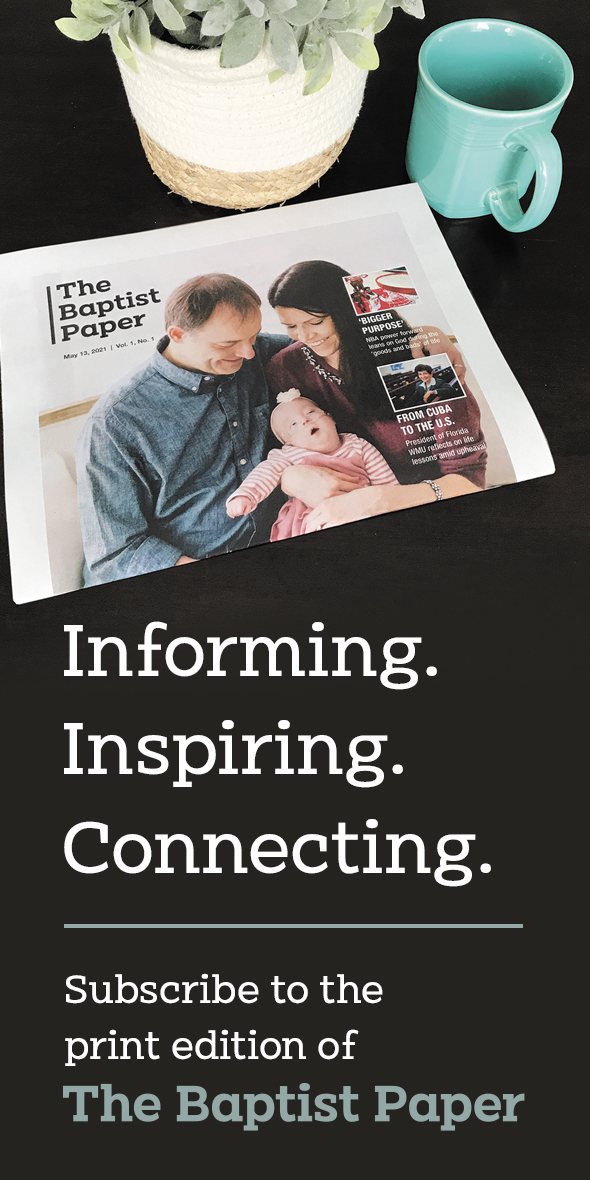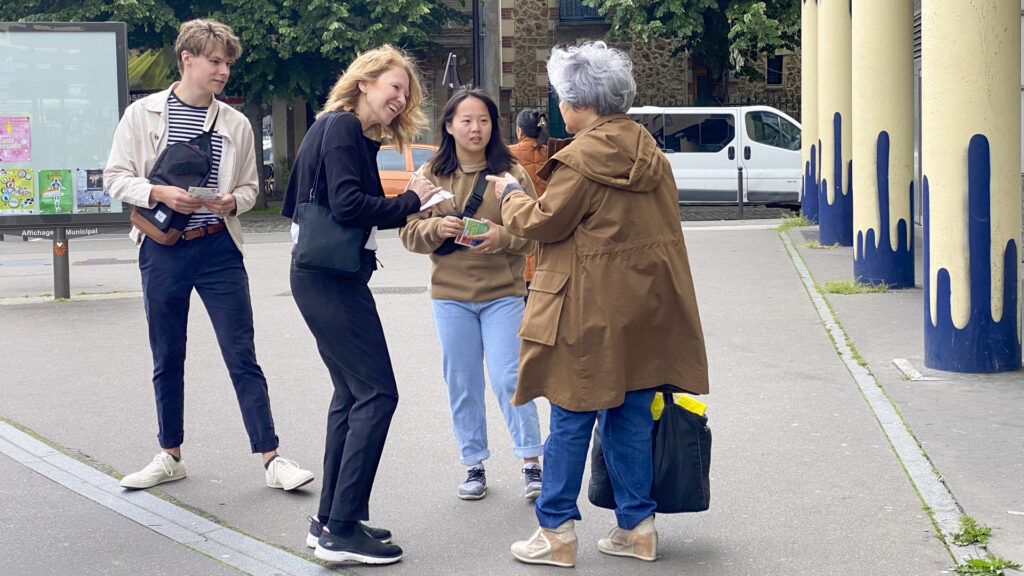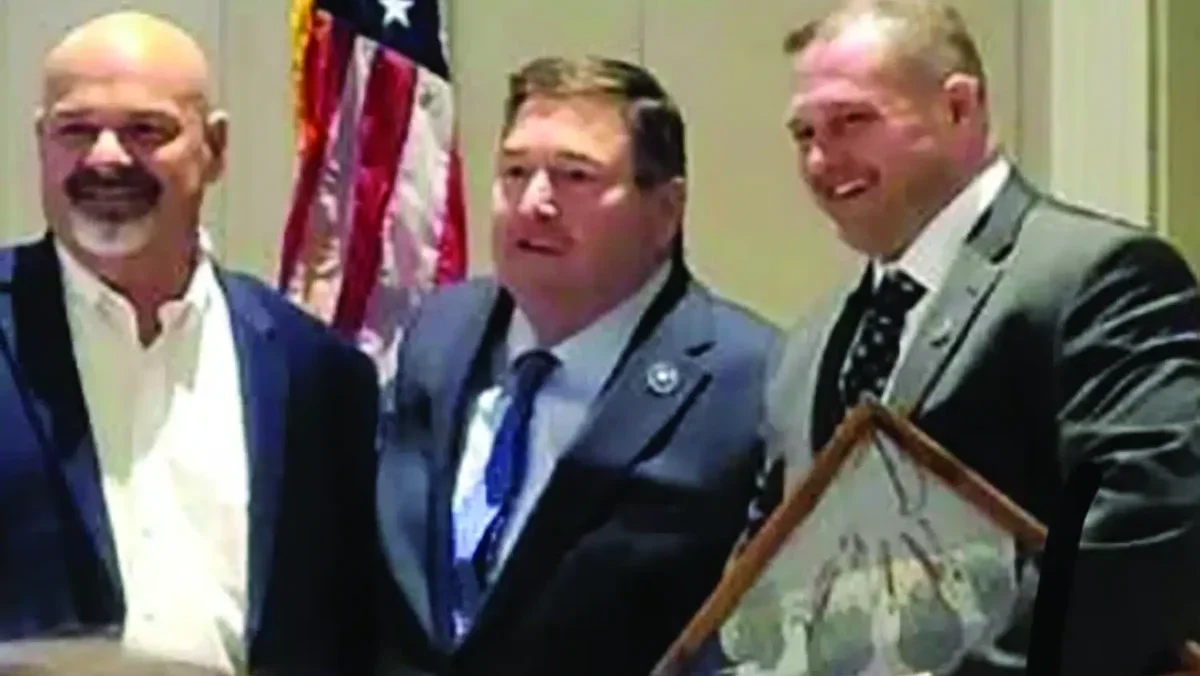The Conservative Baptist Network, launched in February 2020 as a “grassroots movement” by a group of Southern Baptists “concerned about the current direction and perceived future of the [Southern Baptist] convention,” says it “has just gotten started.”
Two CBN steering council leaders, Brad Jurkovich and Rod Martin, shared about the next steps for the group in a TAB Media special report interview with Jennifer Davis Rash and Margaret Colson.
The strategic plans for “conservative re-engagement” were especially visible during the recent SBC annual meeting in Nashville, they explained. And “lingering concerns” with the focus and direction of the SBC are fueling CBN leaders’ energy to continue moving forward, they added.
Martin, one of CBN’s founders, noted the group had experienced “tremendous accomplishment for one year of organizing in the midst of a pandemic. Of course, we’re going to keep going. The issues are still very much alive, and there is still a very real debate within the SBC on things that truly matter. We’re going to represent what I believe is the vast majority of Southern Baptists.”
Speaking at a breakfast during the 2021 SBC meeting, Martin rallied the crowd: “My goodness, all of the apostles but one went to a martyrs’ death, and we’re going to be unnerved about a few mean tweets? No! We are here, we are rooted, we are here to the death! We will not stop! We will not stop! We will not stop!”
Jurkovich, spokesperson for CBN since its beginning, said during the recent TAB Media interview, “We made a strong statement in Nashville, I think much greater than most people realized, which is supremely encouraging, and there’s no reason for us to back down. The Lord has used this network.”
Denominational alienation
Among the group’s concerns is the perception that SBC leaders “are pretty removed from the Baptist in the pew,” said Martin, founder and CEO of The Martin Organization in Destin, Florida. “I talk to people all over the country who feel alienated from the SBC.”
One issue CBN leaders say brings alienation is the idea of being “woke,” which Martin believes is a variant of critical theory. He said the core belief of CT is that “the central problem in society is hierarchy, power structure and everything is defined in terms of power relationships.”
Martin, who was part of PayPal’s startup team and a policy director to former Arkansas Gov. Mike Huckabee, believes proponents of CT are wanting to “replace the system of Western governance and Western thought with what is fundamentally a Marxian ideal. … It is fundamentally toxic; it is horribly divisive.”
CT, he added, is a “worldly system that is opposed not just to Christianity but to Christ, and we must not let that seep into the Body of Christ.”
Jurkovich, senior pastor of First Bossier, Bossier City, Louisiana, agreed CT is “very, very dangerous,” describing it as a “very sinister ideology … literally ripping churches apart, denominations apart and obviously our culture.”
A subset of CT, Martin said, is critical race theory, which has been a hot-button topic among Southern Baptists since “Resolution 9: On Critical Race Theory and Intersectionality” passed at the SBC annual meeting in Birmingham in 2019. The resolution affirmed the Bible as “the first, last and sufficient authority” regarding how the church tries to amend social evils and said CRT and intersectionality should only be used in submission to Scripture.
While some 2021 SBC messengers called for Resolution 9 to be rescinded this year, the request was not an option for passage because resolutions are specific to the year they are adopted as a non-binding statement by that particular year’s messengers. Future sets of messengers can’t rescind actions from past messengers, convention attorney Jamie Jordan explained, because no gathered group of messengers in one year can “undo” an opinion expressed by any other gathered group of messengers from a previous year.
However, this year’s messengers did adopt “Resolution 2: On the Sufficiency of Scripture for Race and Racial Reconciliation” which quotes from Scripture and the Baptist Faith and Message 2000 regarding race and racial reconciliation before affirming the Bible’s adequacy on the issues.
While not naming CRT specifically, the resolution stated that SBC messengers “reject any theory or worldview that finds the ultimate identity of human beings in ethnicity or in any other group dynamic” and “reject any theory or worldview that sees the primary problem of humanity as anything other than sin against God and the ultimate solution as anything other than redemption found only in Christ.”
The resolution also repudiated “any theory or worldview that denies that racism, oppression or discrimination is rooted, ultimately, in anything other than sin.”
During discussion of the resolution prior to the vote, questions surfaced about why the resolution didn’t specifically mention CRT.
James Merritt, resolutions committee chair, explained that the resolutions committee rejects any theory that says “our problem is anything other than sin and the solution is anything other than the gospel of Jesus Christ.”
In a press conference following the vote, Merritt said, “If we were as passionate about the gospel as we are the CRT, we’d win this world tomorrow. There’s a world watching out there; this (division about CRT) is exactly what they want. Let’s give them something to talk about. We can either build bridges and tear down walls, or we can put up walls and tear down bridges. It’s time to find out who we are and where we’re headed.”
Martin concurred that CRT has created denominational division, yet he believes the theory needs to be called out for what he considers it to be: “not just antithetical to the gospel but actually a false gospel … a form of works salvation that’s just unachievable. It defines some people as never being able to repent and others as never needing to,” he asserted.
“It’s horrifyingly divisive, whereas the scripture teaches us that we are all one in Christ. We should be exercising Christian forgiveness, not dragging up everyone’s ancestors’ sins until the end of time. While it’s perfectly worthy to discuss these things in proper context, it’s not worthy to beat people over the head with things they didn’t even do or weren’t even alive to see.”
Declining metrics
Jurkovich and Martin also expressed concern about the SBC’s declining number of baptisms.
In May, Lifeway Research said Southern Baptist congregations reported baptizing 123,160 people in 2020, a 47.76% decline from the 235,748 reported in 2019.
While the COVID-19 pandemic undoubtedly impacted all church-related statistics, the 2020 baptism numbers were not surprising because of the previous eight straight years with fewer baptisms.
Several individuals and groups have been studying the decline for decades. Some contend it could simply be because more and more churches decline to fill out the Annual Church Profile, where these statistics are gathered.
Others believe it is a lack of reaching the lost and then a lack of discipling them once they are saved.
SBC Executive Committee president and CEO Ronnie Floyd’s Vision 2025, amended and adopted by convention messengers this year in Nashville, included the concern of declining numbers in strategic action #4:
•Turn around the ongoing decline in the SBC in reaching, baptizing and discipling those under the age of 18 in the prime of their teenage years.
Martin pinpoints his theory for the decline to the Great Commission Resurgence Task Force Report, passed by messengers at the June 2010 SBC meeting in Orlando. The task force was chaired by Floyd, then a pastor in Arkansas, at the request of then-SBC president Johnny Hunt, a pastor in Georgia at the time, following a vote by convention messengers in 2009 to authorize it.
The task force was charged with studying how Southern Baptists can work “more faithfully and effectively together in serving Christ through the Great Commission.”
“What we’ve been doing the past decade as Southern Baptists isn’t working, obviously,” Martin said in the interview with TAB Media. “Around the time we passed the Great Commission Resurgence, we saw these numbers tank.”
The GCR effort analyzed Southern Baptist resources, structures and strategies and provided guidance for new directions going forward with the goal of refocusing on the Great Commission.
Evangelism efforts shifted dramatically at the North American Mission Board following GCR. NAMB officials note the style and strategy were adapted, but a focus for evangelism has never been eliminated.
Martin disagrees, however. He pointed out how the department assigned to evangelism disappeared when the GCR report was adopted.
“Now we’ve got Johnny Hunt [NAMB senior vice president of evangelism and leadership], but we had nothing for years,” Martin said “We have emphases on things that clearly do not reap the harvest, and the fields are white unto harvest. There’s not a problem in America that would not be solved if we were reaching the world for Jesus Christ.”
Martin decried what he called a “social gospel approach,” stating, “We’re not going to solve the world’s problems by being a better welfare operation or by adopting the views of the culture better instead of preaching the true reconciliation that can only come from the blood [of Christ]. We need to be preaching that strongly.
“We need to get back to Great Commission evangelism and revivals and the kinds of things that produced actual harvest of souls for decades through the Southern Baptist Convention.”
Leadership concerns
CBN leaders endorsed three candidates for SBC office this year — Mike Stone, president; Lee Brand, first vice president; and Javier Chavez, second vice president.
Brand, dean and vice president at Mid-America Baptist Theological Seminary, Cordova, Tennessee, and a member of the CBN steering council, was the lone victor of the group’s candidates with 52.93% of the vote for first vice president.
In the second vice president’s race, Chavez, pastor of Amistad Cristiana, Gainesville, Georgia and a member of the CBN steering council, lost his bid to Ramon Medina, lead pastor of Spanish ministries for Champion Forest Baptist Church, Houston, who was elected with 53.22 % of the vote in the runoff.
Ed Litton, pastor of Redemption Church in Saraland, Alabama, was elected president on a second ballot, defeating Stone, a member of the CBN steering council and pastor of Emmanuel Baptist Church, Blackshear, Georgia, by some 550 votes.
Prior to the runoff, Stone received the largest percentage of votes among the four candidates with 36.48%. Litton received 32.38%, while Al Mohler, president of Southern Baptist Theological Seminary, received 26.32% and Randy Adams, executive director of the Northwest Baptist Convention received 4.71%.
In the days following the election, Litton was criticized for preaching numerous sermons nearly identical to some preached by outgoing SBC President J.D. Greear, without citing Greear as his source, a practice described by many as “plagiarism.” Litton and Greear both confirmed permission to use the sermons had been granted, and Litton issued a public apology “for not mentioning J.D.’s generosity and ownership of these points. I should have given him credit as I shared these insights.”
Martin described Litton’s response as a “non-apology apology.”
CBN also issued a statement July 20 calling for Litton to “step down from office and focus on his personal spiritual development with his local church.”
Not a new denomination
Since CBN’s inception, some have questioned whether leaders are trying to destroy the SBC and create a new denomination. Jurkovich and Martin insist this is not the case.
CBN is “first of all about the SBC. We are not, as some of our opponents have accused us of … trying to form a new denomination. We are not trying to harm the Cooperative Program — quite the contrary. We are strongly of the belief that the Cooperative Program is one of the greatest inventions in the history of the church,” Martin said, “I was a Southern Baptist before I was a Christian.”
Jurkovich added, “We are not out to replace the Southern Baptist Convention, and we want to give pastors and people a voice to stand strong and make a difference in Southern Baptist Convention life and through it.”
In a telephone interview, Jurkovich added, “I love Christ. I love the church. I love the SBC. … As the SBC goes, so goes America.”
Both Martin and Jurkovich have been trustees for the SBC Executive Committee, becoming friends when they served on its committee on order of business several years ago. Martin continues to serve on the EC, although he was not reelected this year to serve a customary second term as chairman of the committee on convention finances and strategic planning.
After two votes in which neither Martin nor the other candidate, Erik Cummings, pastor of New Life Baptist Church, Carol City, Florida, received the 40 votes needed for election, Martin withdrew his name from consideration and recommended the EC elect Cummings by acclamation.
In a statement, Martin said, “Erik Cummings is a friend and a good man. Obviously, I’d have preferred to win, and when you lead from the front sometimes you get shot. But the unity of the body is important too.”
————
Organizational structure of the Conservative Baptist Network
Since its February 2020 grassroots beginning, the Conservative Baptist Network has become more structured.
“The organization is taking shape right now,” Jurkovich said in a second interview with TAB Media.
CBN steering council member Scott Colter, director of strategic initiatives at Mid-America Seminary, has been selected to serve as CBN executive director, Jurkovich said in mid-July. Colter previously was executive director of the Sandy Creek Foundation, Dallas, and chief of staff to Paige Patterson when he was president of Southwestern Baptist Theological Seminary in Fort Worth, Texas.
Nine state chapters currently are listed on the CBN website, and Jurkovich said several others are in the beginning stages of forming chapters. Leaders gathered in Nashville during the SBC meeting “for a time of fellowship and encouragement.”
CBN leaders also announced they have organized a news and information arm “to deliver fair and accurate reporting on Southern Baptist life and issues of local, national and global importance from a Baptist perspective.”
Although the website does not list names of people serving in communications, several CBN steering council members have published online articles for the organization, including Sharayah Colter, journalist and owner, Colter & Co., Memphis, Tennessee; Gerald Harris, retired editor, The Christian Index, Georgia; and Jessica Pigg, author and pastor’s wife, Fellowship Church, Immokalee, Florida.
Jurkovich said the Network has developed partnerships with numerous entities, including The Family Research Council, Washington D.C.; Truett McConnell University, Cleveland, Georgia; and Mid-America Seminary. The group’s activities are funded through contributions from churches, pastors, individuals and other organizations, Jurkovich said, adding the Standing for Freedom Center of Liberty University, Lynchburg, Virginia, underwrote the cost of the CBN breakfast at the SBC meeting, which drew more than 1,300.










